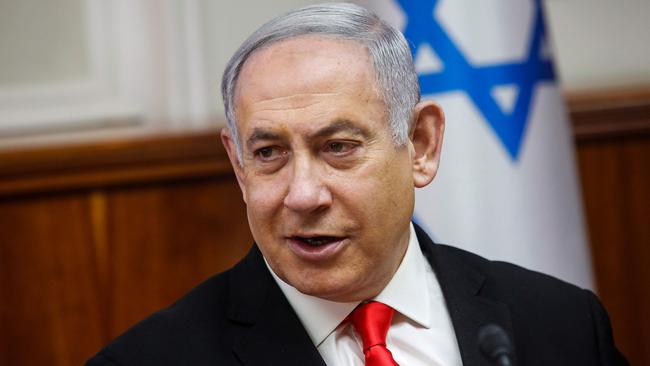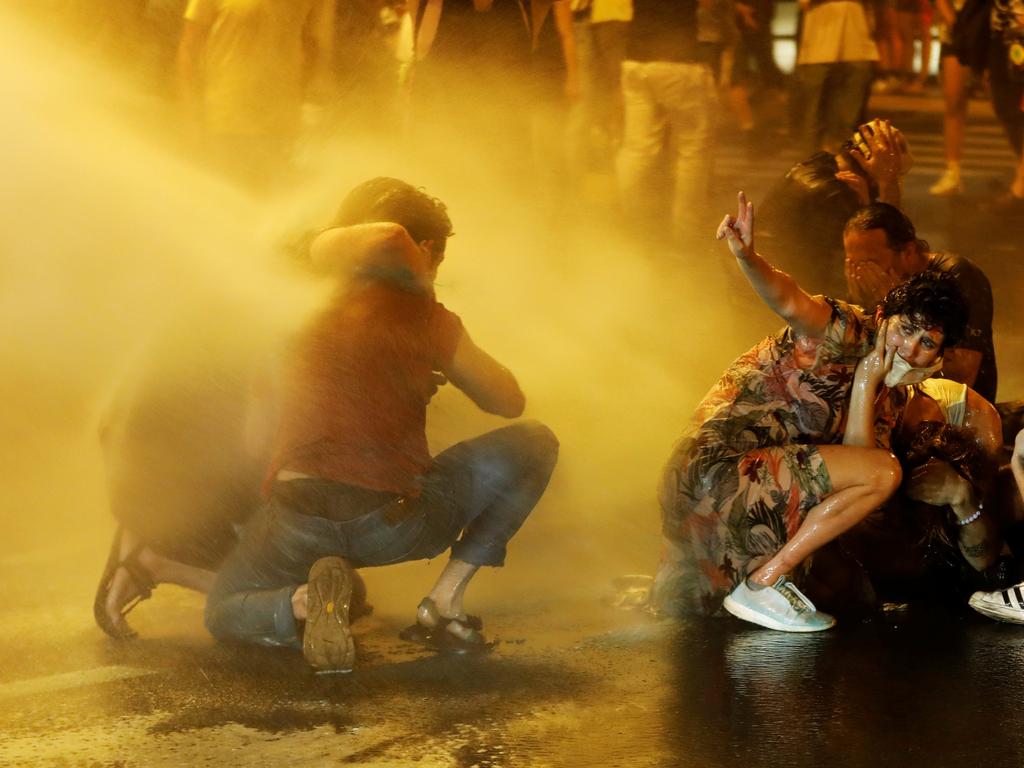Benjamin Netanyahu’s corruption trial resumes amid coronavirus crisis
Netanyahu’s trial has bolstered critics who say he isn’t fit to lead as he balances his defence with fighting the surge in COVID-19.

An Israeli court ruled on Sunday night it would begin hearing testimony from witnesses in Prime Minister Benjamin Netanyahu’s corruption trial in January, drawing into focus the embattled leader’s challenges as he faces rising public anger over the government’s handling of the coronavirus crisis.
The courthouse in East Jerusalem may hold procedural hearings in the Fall before the evidentiary stage gets under way early next year, the court spokesperson said.
Mr Netanyahu was indicted last year for bribery, fraud and breach of trust in cases connected to three corruption probes. The statements from witnesses are expected to highlight the extent of Mr Netanyahu’s legal issues, which have overshadowed the political debate in the country in the past two years and helped bring about three inconclusive elections. He denies wrongdoing and has said the charges are a witch-hunt designed to force him from power.
But in a sign of the trial’s strain on the country’s longest-serving leader, Mr Netanyahu’s defence team asked for a six-month delay in the proceedings due to the coronavirus pandemic. The judge appeared to dismiss the argument by determining the trial’s procedure.
“It’s a decision about political time, how much political time Mr Netanyahu would enjoy before he has a court decision, either conviction or exoneration or a plea bargain,” said Gad Barzilai, a law professor at the University of Haifa.
The trial, which began in May, has bolstered critics who say Mr Netanyahu isn’t fit to lead the country as he balances his own legal defence with his duties of leading the country during what he has himself described as an emergency situation due to a resurgent virus.
After successfully steering Israel through the first wave of infections, Mr Netanyahu has been blamed for opening Israel’s economy and school system too quickly — resulting in a second, more intense wave of cases. New cases have hovered around 1800 a day in the past week, compared with fewer than 50 a day two months ago. More than 49,000 people have tested positive and 406 have died among Israel’s population of nine million.
Thousands of Israelis took to the streets on Saturday night to demand economic relief as the government raced to reimpose a lockdown on parts of the economy to try to contain the fresh outbreak. Demonstrators in the past week have criticised Mr Netanyahu’s economic policies to deal with the pandemic. They have called on him to resign over his corruption trial.
The government’s response to the pandemic has also caused friction within the ruling coalition. Mr Netanyahu and his former rival Benny Gantz in May formed a unity government aimed at confronting the coronavirus crisis. But tensions have risen between the right and centre-left parties in the group over the military’s involvement in the coronavirus response, and on how hundreds of millions of dollars in relief announced by Mr. Netanyahu should be distributed.
The divisions in the unity government have sparked discussions among analysts, commentators and politicians of a possible fourth election. Mr Netanyahu is likely to avoid such a push as recent polling indicates he is losing support amid the worsening coronavirus situation. A poll last week by the Jerusalem-based Israel Democracy Institute found that 29.5 per cent of the public trust Mr. Netanyahu’s handling of the crisis, down from about 50 per cent in mid-April.
Mr Netanyahu is accused of allegedly accepting expensive gifts from wealthy businessmen in exchange for official favours and offered two media moguls regulatory and financial benefits in exchange for positive press coverage. The trial is expected to go on for years, perhaps as many as five, and the state has more than 310 witnesses.
While seeking a delay in the proceedings, Mr Netanyahu’s lawyers said they would be unable to cross-examine witnesses wearing masks as it would be hard to judge their testimony without reading facial expressions.
The Wall Street Journal





To join the conversation, please log in. Don't have an account? Register
Join the conversation, you are commenting as Logout